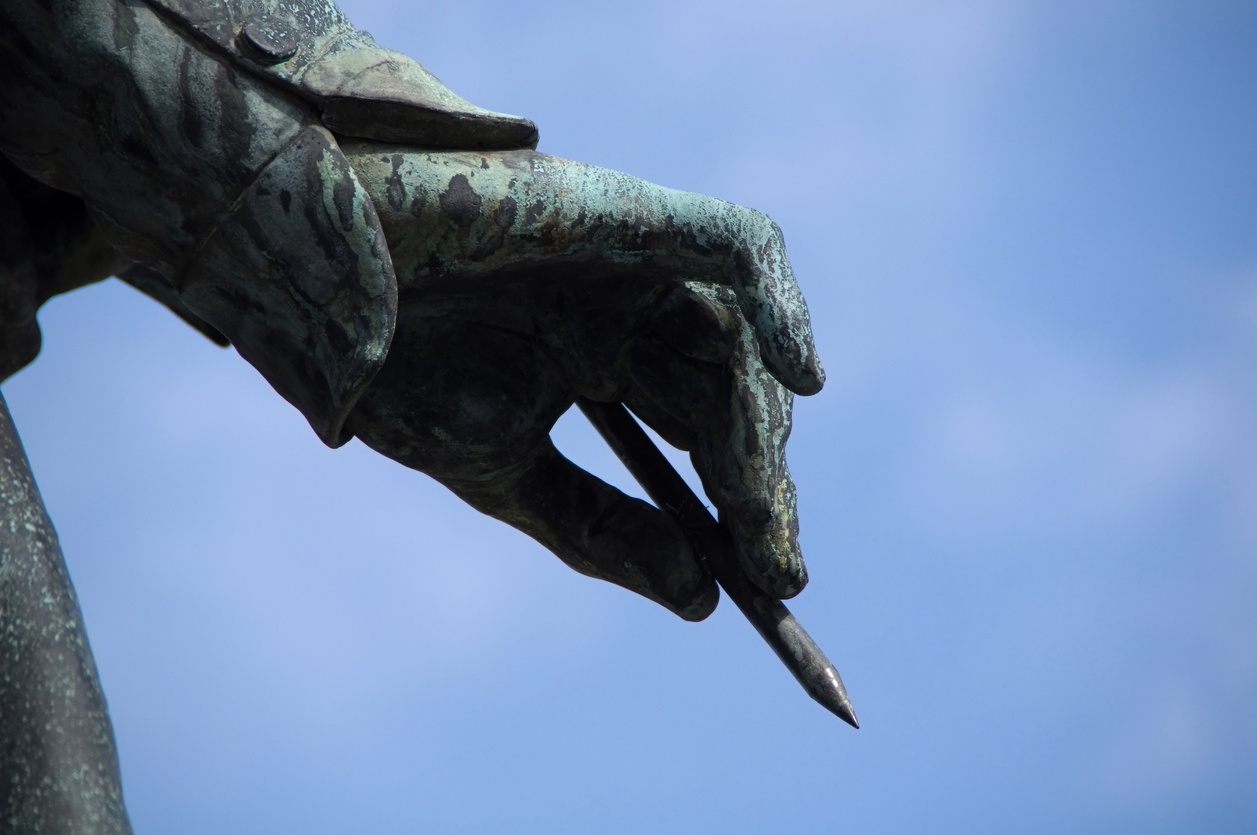In This Episode
It’s the 250th anniversary of the birth of Ludwig van Beethoven – in my opinion, the greatest creative genius in history and a man of extraordinary moral courage. In this episode of Holy Smoke, I’m joined by his fellow composer Sir James MacMillan to discuss a side of Beethoven that the postmodern artistic establishment prefers to ignore: his unwavering faith in God and the surprisingly strict morality that arose from it.
One of the questions I ask Sir James is whether Beethoven was really a Catholic. His answer is a resounding yes. He may not have gone to Mass very often, but before he died he asked to see a priest and during years of intense suffering composed one of the greatest of all settings of the liturgy, the Missa Solemnis. He was more proud of this masterpiece than of any of his symphonies; before he wrote it he meticulously researched the Latin text, and he also plunged into a study of the polyphonic masters of the 16th century.
Many modern musicologists seem determined to cast Beethoven in the secular role of revolutionary. It never occurs to them that his opera Fidelio might be a celebration of the institution of marriage – and how often do we hear that one of his responses to losing his hearing was daily prayer? This isn’t to say that Beethoven led a life of strict piety: another way of coping with his agonisingly slow descent into near-total deafness was heavy drinking and it’s likely that he died at the relatively young age of 56 because his liver packed up.
As MacMillan points out, he wasn’t an easy man to be around, especially in his later years, when he did his best to drive away his friends by picking paranoid fights with them. But it’s hard to think of any other composer who had more reason to feel unhappy – and you won’t find a trace of self-pity in any of his work. The combination of a quarrelsome disposition and unflinching moral courage isn’t all that unusual; one of the things that makes Beethoven so extraordinary is that he treated composition as a moral obligation – a solemn duty to push his genius to its limits, however wretched his mood and circumstances.
Sir James MacMillan is currently presenting a Radio 4 series on the religious faith of four composers: Tallis, Wagner, Elgar and Bernstein. If the BBC has the good sense to make another season, then he’s planning to do a programme on Beethoven. But you don’t have to wait to hear his fascinating reflections on the great man: just listen to this exhilarating episode of Holy Smoke.






Comments
A blooming good offer
Join the conversation with other Spectator readers by getting the next 3 months for £3.
CLAIM OFFER 3 months for £3Already a subscriber? Log in